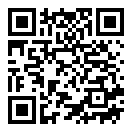Pages:
7-19
Receive Date: 2026/02/11
Accept Date: 2026/02/11
Abstract:
This article seeks to investigate the Prophet Yusuf’s sources of the leadership power from the perspective of the Qur'an. The materials were collected using the library method. They were analyzed through the "descriptive-analytical" method and referring to management and interpretive texts. First, according to management works, sources of power were explained. These sources are: legal power, reward power, skill and expertise power, information power, competence power and relationship. Then, their existence and quality during the prophethood of Prophet Yusuf was proved. Next, according to the Qur'an's statement about the life and management of prophet Yusuf, in addition to the common sources of leadership power mentioned in research works and management books, other sources were found, including: divine success, miracle and revelation. Finally, it has been pointed out that ordinary people can learn from the sources of power of prophets.
چکیده و کلیدواژه فارسی (Persian)
Title :بررسی منابع قدرت رهبریِ حضرت یوسف از نگاه قرآن
Abstract:
هدف این نوشتار بررسی منابع قدرت رهبریِ حضرت یوسف(ع) از نگاه قرآن است. مطالب به صورت کتابخانهای جمعآوری و به روش «توصیفی ـ تحلیلی» و با مراجعه با متون مدیریتی و تفسیری، تجزیه و تحلیل شده است. ابتدا با توجه به آثار مدیریتی، منابع قدرت تبیین گردید. این منابع عبارتاند از: قدرت قانونی، قدرت پاداش، قدرت مهارت و تخصص، قدرت اطلاعات، قدرت صلاحیت و رابطه. سپس وجود آنها در دوران پیامبری حضرت یوسف(ع) و کیفیت آنها اثبات گردید. در ادامه، علاوه بر منابع رایج قدرت رهبری که در آثار پژوهشی و کتب مدیریتی ذکر شده است، با توجه به بیان قرآن از زندگی، سیره و مدیریت حضرت یوسف(ع) در جامعة آن روز، منابع دیگری یافت شد که عبارتاند از: توفیق الهی، معجزه و وحی. در نهایت، به توان الگوگیری انسانهای عادی از منابع قدرت پیامبران اشاره گردیده است.
References:
- قرآن کریم.
- حلیسی، نواف بن صالح (1411ق). المنهج الإقتصادی فی التخطیط لنبی الله یوسف. مصر: مطابع الأهرام بکورنیش النیل.
- دیوس، کیت و نیواستورم، جان (1375). رفتار انسانی در کار. ترجمة محمدعلی طوسی. تهران: مرکز آموزش مدیریت دولتی ریاست جمهوری.
- راغب اصفهانی، حسین بن محمد (1412ق). المفردات فی غریب القرآن. دمشق ـ بیروت: دارالشامیه ـ دارالقلم.
- رضائیان، علی (1382). مدیریت رفتار سازمانی. تهران: سمت.
- رضائیان، علی (1399). مبانی مدیریت و سازمان. تهران: سمت.
- طباطبائی، سیدمحمدحسین (1363). المیزان فی تفسیر القرآن. سقز: محمدی.
- طبرسی، فضل بن حسن (1412ق). مجمع البیان فی تفسیرالقرآن. قم: دارالمعرفه.
- طوسی، محمد بن حسن (بیتا). التبیان. بیروت: دارالاحیاء التراث.
- فیض کاشانی، مولیمحسن (1415ق). تفسیر الصافی. تهران: مکتبة الصدر.
- قرشی، علیاکبر (1363). قاموس قرآن. تهران: دارالکتب الاسلامیه.
- مجلسی، محمدباقر (1395). تاریخ انبیاء. تهران: آدینة سبز.
- مجلسی، محمدباقر (1403ق). بحارالانوار. بیروت: داراحیاء التراث.
- مصباح یزدی، محمدتقی (1395). راه و راهنماشناسی. قم: مؤسسة آموزشی و پژوهشی امام خمینی(ره).
- مکارم شیرازی، ناصر (1353ق). تفسیر نمونه. تهران: دارالکتب الاسلامیه.
- مورهد، جی و گریفین، آر. دبلیو (1375). رفتار سازمانی. ترجمة سیدمهدی الوانی و غلامرضا معمارزاده. تهران: مروارید.
- میچل، ترنس (1376). مدیریت در سازمانها. ترجمة محمدحسین نظرینژاد. مشهد: آستان قدس.
- هرسی، پل و بلانچارد، کنت اچ. (1369). مدیریت رفتار سازمانی. ترجمة قاسم کبیری. تهران: جهاد دانشگاهی.
- دانشنامة امامت و ولایت (بیتا). از https://fa.imamatpedia.com/wiki.
Cite this article:
RIS
Mendeley
BibTeX
APA
MLA
HARVARD
VANCOUVER
APA | MLA | HARVARD | VANCOUVER
Tork, Ahmad, Manteghi, Mohsen.(2026) Examining the Sources of Leadership Power of Prophet Yusuf from the Perspective of the Quran. Islam va Pazhuheshhaye Modiriyati, 13(2), 7-19 https://doi.org/10.22034/modiriyati.2024.5000748
APA | MLA | HARVARD | VANCOUVER
Ahmad Tork; Mohsen Manteghi."Examining the Sources of Leadership Power of Prophet Yusuf from the Perspective of the Quran". Islam va Pazhuheshhaye Modiriyati, 13, 2, 2026, 7-19
APA | MLA | HARVARD | VANCOUVER
Tork, A, Manteghi, M.(2026) 'Examining the Sources of Leadership Power of Prophet Yusuf from the Perspective of the Quran', Islam va Pazhuheshhaye Modiriyati, 13(2), pp. 7-19
APA | MLA | HARVARD | VANCOUVER
Tork, A, Manteghi, M. Examining the Sources of Leadership Power of Prophet Yusuf from the Perspective of the Quran. Islam va Pazhuheshhaye Modiriyati, 2026; 13(2): 7-19
 / MA in Management, The Imam Khomeini Institute for Education and Research / ahmadtork.7474@gmail.com
/ MA in Management, The Imam Khomeini Institute for Education and Research / ahmadtork.7474@gmail.com / Associate Professor at the Department of Management, Imam Khomeini Institute for Education and Research / manteghi@iki.ac.ir
/ Associate Professor at the Department of Management, Imam Khomeini Institute for Education and Research / manteghi@iki.ac.ir



